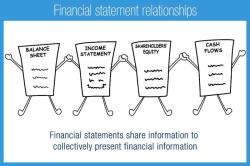What is the fiscal law philosophy?
The philosophy underpinning fiscal law revolves around several core principles and ethos aimed at ensuring responsible management of public finances. Here are some key elements:
Sustainability: Fiscal laws emphasize the sustainability of government finances. This involves balancing revenue generation and expenditure to avoid excessive deficits and accumulating unsustainable levels of debt.
Transparency and Accountability: Transparency is crucial to fiscal law, ensuring that government finances and decisions regarding revenue and expenditure are open and accessible to the public. Accountability holds government entities responsible for their financial decisions and actions.
Equity and Fairness: Fiscal laws aim to create fair taxation systems, ensuring that the burden of funding government activities is distributed equitably among the population and across different economic sectors.
Efficiency and Effectiveness: These laws strive to ensure that public funds are used efficiently and effectively to achieve desired outcomes. This includes prudent budgeting, cost-effective allocation of resources, and evaluation of the impact of public spending.
Stability and Predictability: Fiscal laws often seek to create stability and predictability in economic policies, providing a framework that businesses and individuals can rely on for making long-term financial decisions.
Debt Management: Managing public debt is a significant aspect of fiscal law philosophy. It involves responsible borrowing, monitoring debt levels, and ensuring that debt remains at sustainable levels.
Budgetary Discipline: Fiscal laws establish guidelines for creating and maintaining budgets, focusing on controlling spending, avoiding budget deficits, and ensuring that expenditures align with revenue.
Adaptability and Flexibility: While fiscal laws provide a framework, they also need to adapt to changing economic circumstances. Flexibility allows for adjustments in response to economic shocks or changing priorities without compromising the core principles.
The overarching aim of fiscal law philosophy is to promote fiscal responsibility, prudent financial management, and the overall well-being of a nation's economy and its citizens by maintaining a balanced and sustainable fiscal policy.
What are the underlying principles or ideologies in fiscal law philosophy?
The world of fiscal law philosophy is a fascinating one, with various underlying principles and ideologies vying for influence. Here are some key ones to consider:
1. Efficiency and Economic Growth: This principle champions the notion that sound fiscal policies should foster economic growth and optimize resource allocation. It argues for efficient tax systems, responsible budgeting, and prudent spending to promote job creation, investment, and overall economic well-being.
2. Equity and Fairness: This ideology emphasizes the fair distribution of tax burdens and public benefits. It advocates for progressive taxation systems where those with greater wealth contribute proportionally more, ensuring resources are directed towards social programs and infrastructure that benefit all citizens.
3. Stability and Predictability: This principle focuses on maintaining stable public finances and avoiding boom-and-bust cycles. It emphasizes balanced budgets, controlled debt levels, and counter-cyclical fiscal policies that adjust spending and taxation based on economic conditions to promote stability and long-term economic health.
4. Individual Liberty and Limited Government: This ideology emphasizes minimizing government intervention in the economy and protecting individual freedom. It argues for lower taxes, fewer regulations, and limited public spending, empowering individuals and private markets to drive economic activity.
5. Social Welfare and Public Goods: This principle champions the role of government in providing essential public goods and services like healthcare, education, and infrastructure. It supports progressive taxation and targeted spending to address income inequality, poverty, and other social issues.
6. Sustainability and Environmental Protection: This growing ideology emphasizes the need for fiscal policies that consider environmental costs and promote sustainable practices. It advocates for carbon taxes, environmental regulations, and investments in clean energy technologies to combat climate change and protect the environment for future generations.
It's important to note that these principles are not mutually exclusive and often compete for dominance depending on the context, political landscape, and prevailing economic conditions. Additionally, various schools of thought within fiscal law philosophy, such as Keynesianism, monetarism, and supply-side economics, offer different perspectives on these principles and their application.
Understanding these underlying principles and their ideological underpinnings allows for a deeper appreciation of the complex world of fiscal law and the ongoing debates about how best to manage public finances for the benefit of society.
I hope this provides a good starting point for exploring the fascinating world of fiscal law philosophy. Feel free to ask any further questions you might have about specific principles or their practical implications!













